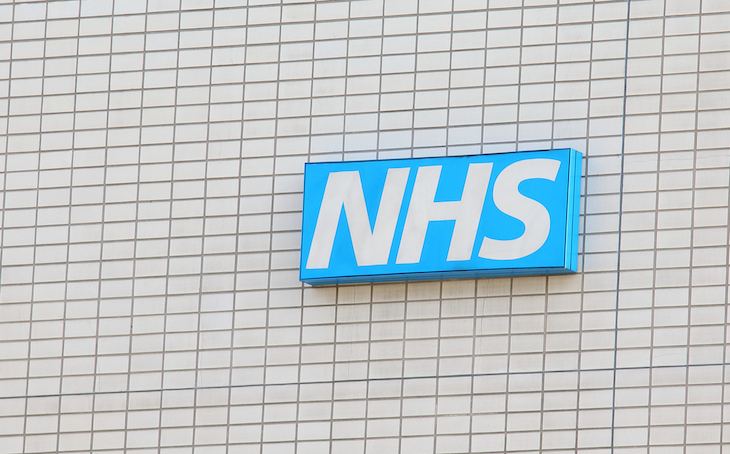French healthcare has its problems but it makes the NHS look like Bedlam.
Recently my GP here thought it would be a good idea for me to visit the radiologist to take a look at my non-performing thyroid gland.
I made the booking online using an app called Doctolib. An appointment was available in a couple of weeks. In the UK you’d be lucky to get one in six weeks.
There are no diversity, equity and inclusion officers. There are no trans flags painted on the sides of hospitals
The privately owned radiography clinic in Clermont Herault is immaculate and spotless. I had a choice of clinics using Doctolib, but my GP recommended this one. I arrived five minutes early for my 10 o’clock appointment.
The clinic is new and the check-in like an airport. I scan my Carte Vitale, the national health identity card, the screen confirms that I’m expected, and I sit in the waiting room for all of two minutes.
A nurse appears, calls my name, and ushers me into a high-tech radiography suite which looks like the control room at SpaceX. Seconds later the radiologist appears. He is 30-something, has shoulder-length hair, knows my name and has my medical history on a screen in front of him.
The exam takes about ten minutes. All done, he directs me to the exit where I pause to pay the bill. €10.90. The results have been sent electronically to my GP.
Seeing my GP here costs – €7.50 with my Carte Vitale (it costs €25 if you don’t have one). As does the levothyroxine I take every day to replace the hormones no longer produced by my feeble thyroid. The drug costs around €5 a month. The blood tests I get every three months at the medical laboratory (also private) cost €12. The treatment has happily been highly effective and I’ve had no anxiety waiting for tests or appointments.
The fees are tokenistic but at least they are a reminder that medical care comes with a cost. Most of this cost is paid by the Secu, through an insurance fund financed by employers. The insurance costs for the unemployed and very poor are paid by the government. (Ironically, as an expatriate never employed in France, my costs are reimbursed to the Secu by the UK Department of Health and Social Care.)
Nothing akin to the NHS exists in France. In a country where the state is normally supreme, medical care is almost entirely delivered privately. There are no diversity, equity and inclusion officers. There are no trans flags painted on the sides of hospitals. No bed blockers. No vast legions of administrators counting paper clips.
GP surgeries answer the telephone almost immediately. You can get an appointment within a day or two, or immediately if it’s urgent.
The excellence of my own experience is not unusual. I have a friend who had her first child in an NHS hospital and her second in France. ‘It was like the difference between flying economy class and business,’ she says. ‘Everything was better. The care. The attitude of the staff. Even the food.’
When a neighbour in my village had a myocardial infarction, a crash team from the local fire station was by his side to stabilise him in ten minutes. A helicopter, staffed by two pilots, a doctor and a nurse, landed on the village football pitch 30 minutes later. He was at the university hospital in Montpellier in less than an hour. My friends and neighbours offer numerous similar anecdotes.
Twelve hour waits in A&E are inconceivable here. Queues of ambulances outside hospitals unknown. Ditto filthy loos, lost medical records, insouciant administrators. There are not, as in the UK, 7.5 million people on hospital waiting lists. All of this French success is achieved entirely by private providers, financed by insurance.
I wouldn’t suggest that the French system is entirely without problems. Some remote parts of the country have a shortage of GPs. The village doctor is disappearing, replaced by more centralised clinics. The elderly who find it hard to get to these are transported there by private ambulances or taxi drivers who have specialised training. Services like visiting nurses, which seem to have vanished in Britain, continue here with hospitalisation à domicile. Trained nurses visit the infirm daily.
There’s room for improvement here. Care homes are not uniformly excellent. Dental care is definitely a problem made worse because, bizarrely, dental hygienists are illegal in France. Legally, only a qualified dentist is allowed to treat teeth. This is literally bonkers.
There’s not a great deal of difference in average life expectancy between the UK and France – 82.4 years in France versus 81.3 in the UK. (The best performance is that of Japan on 84.8). As a percentage of GDP, France spends slightly more than the UK. So it could be argued that an underperforming health care system like the NHS isn’t that significant.
But without a shadow of doubt, those of us who have experienced health care in France and Britain will not hesitate to declare that it’s vastly preferable on this side of the Channel.







Comments